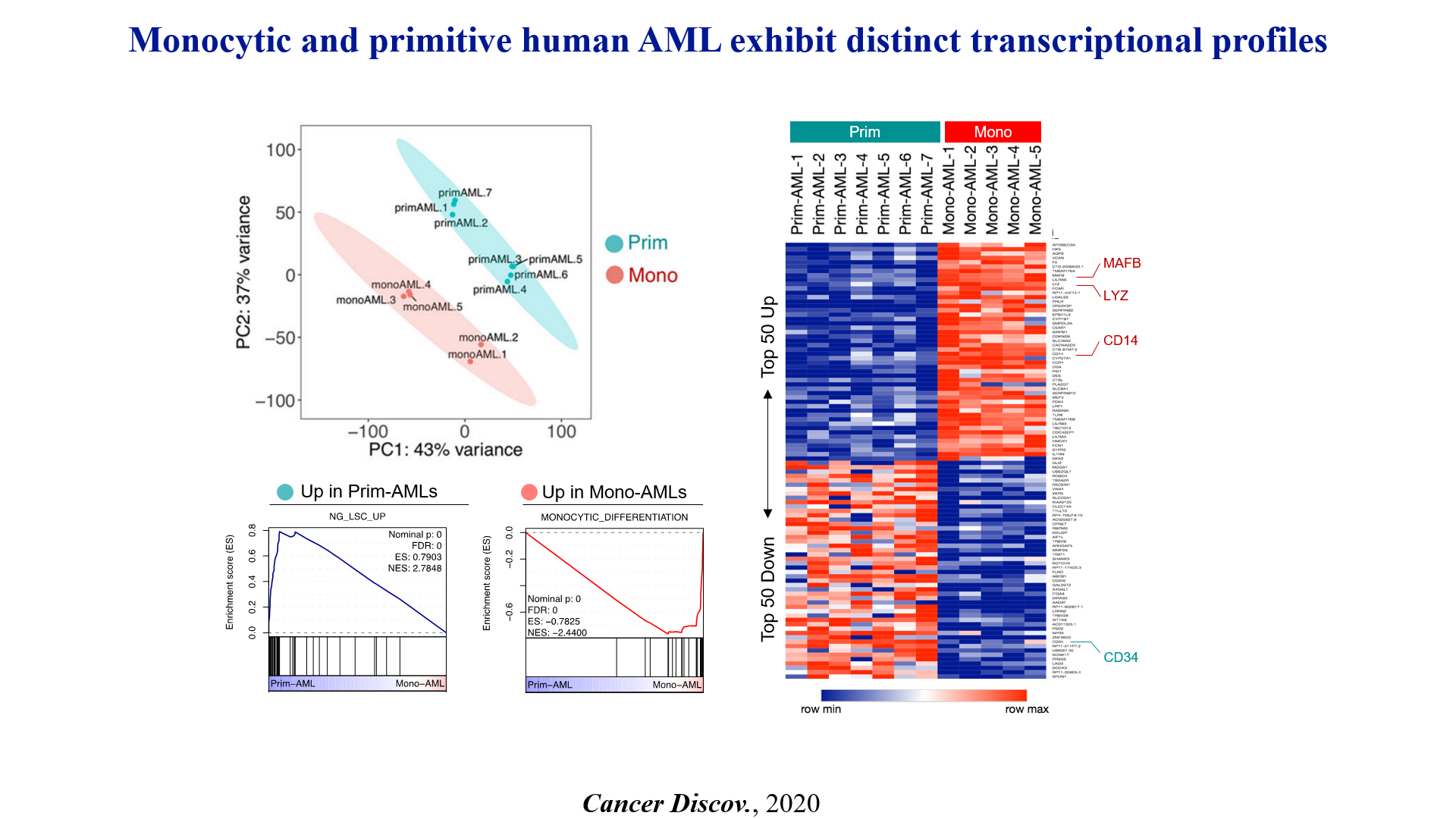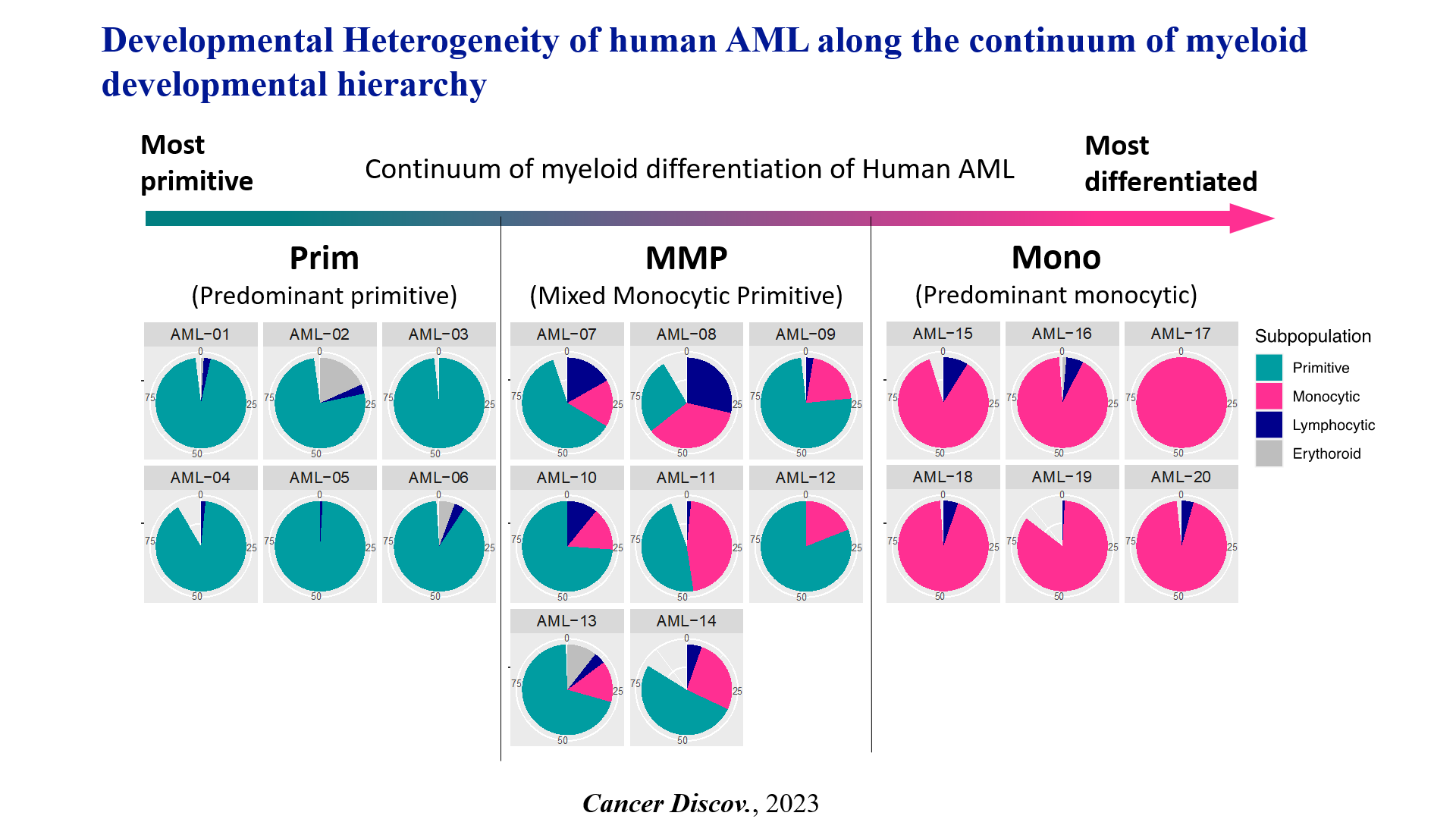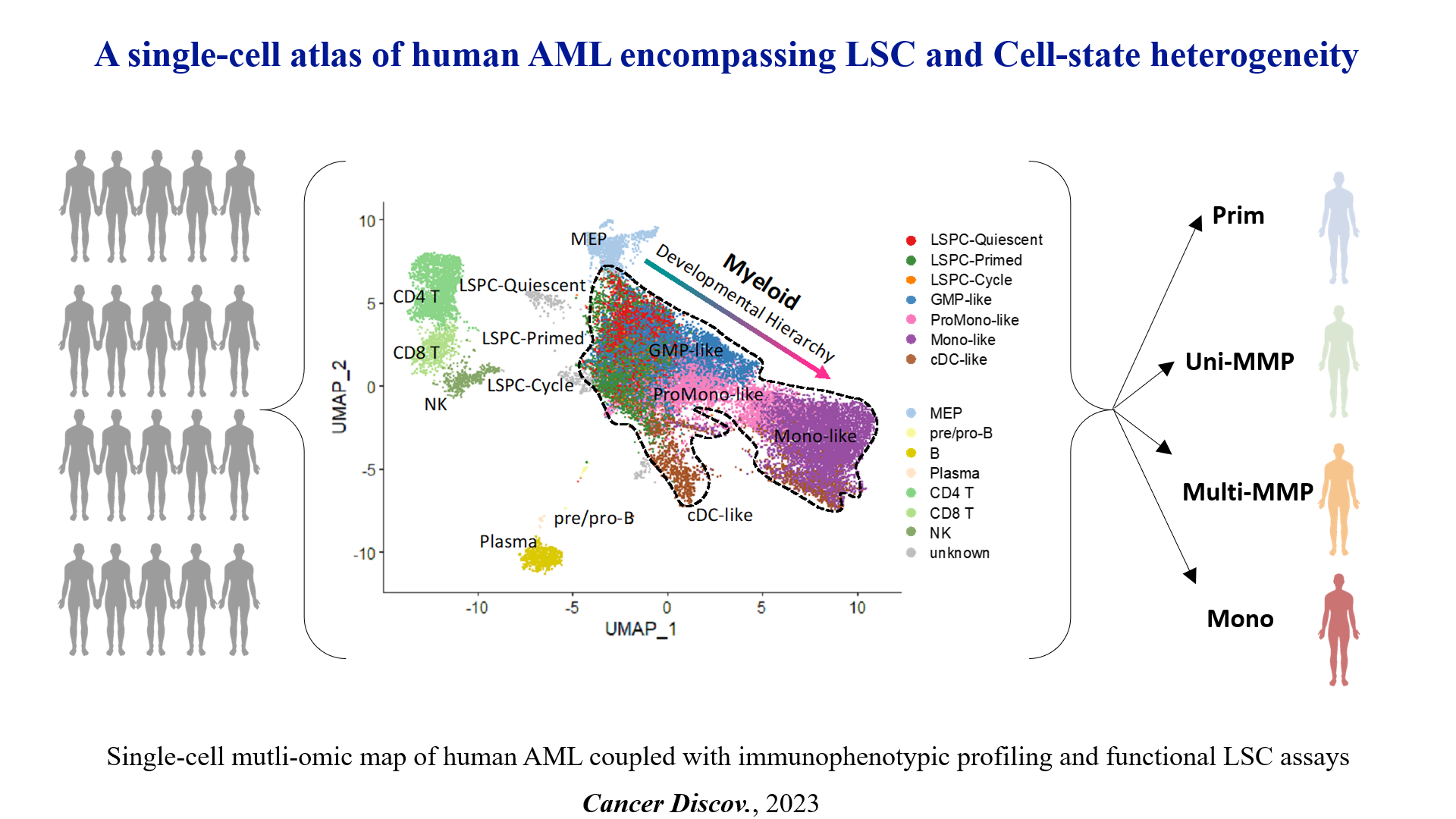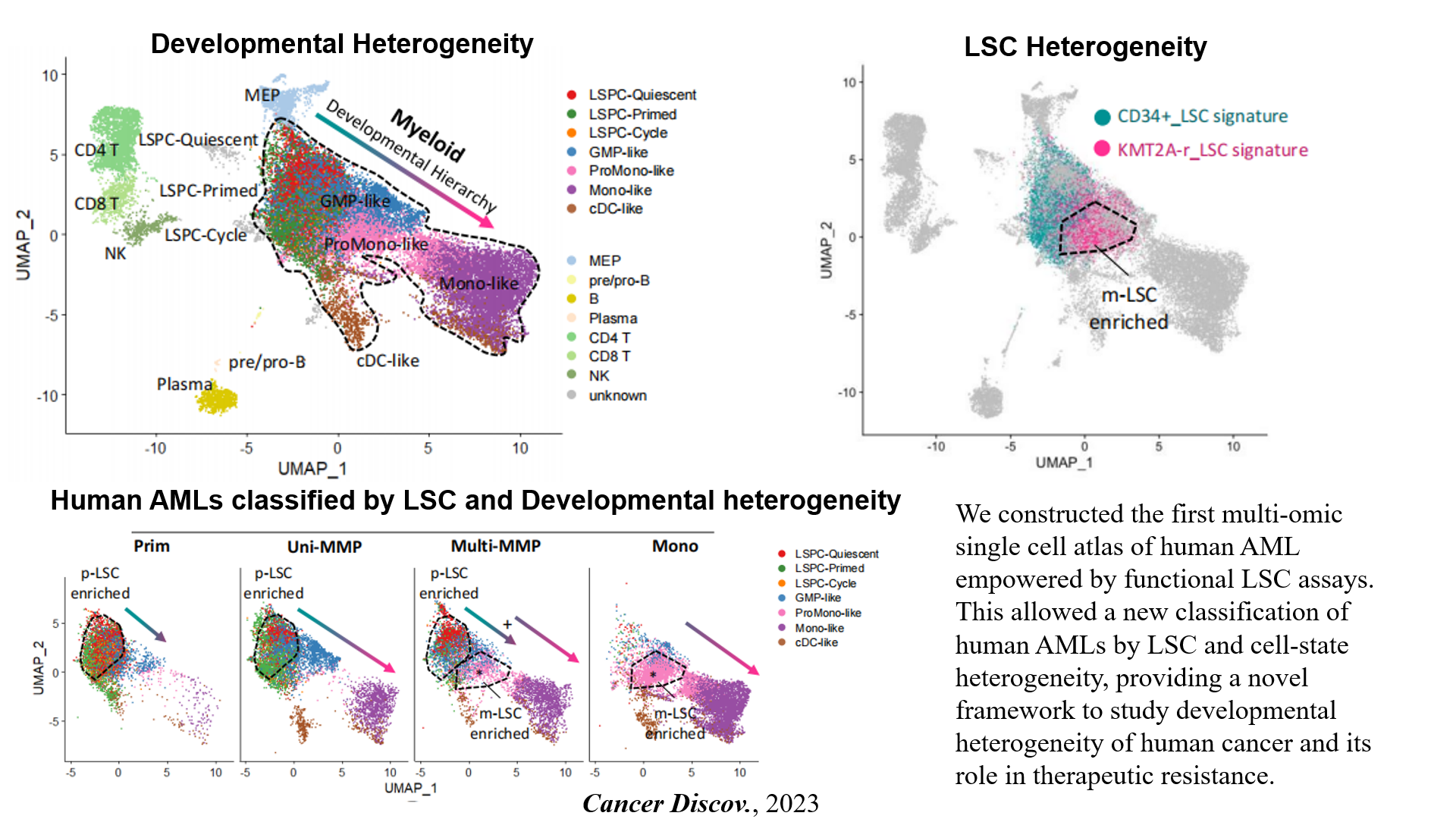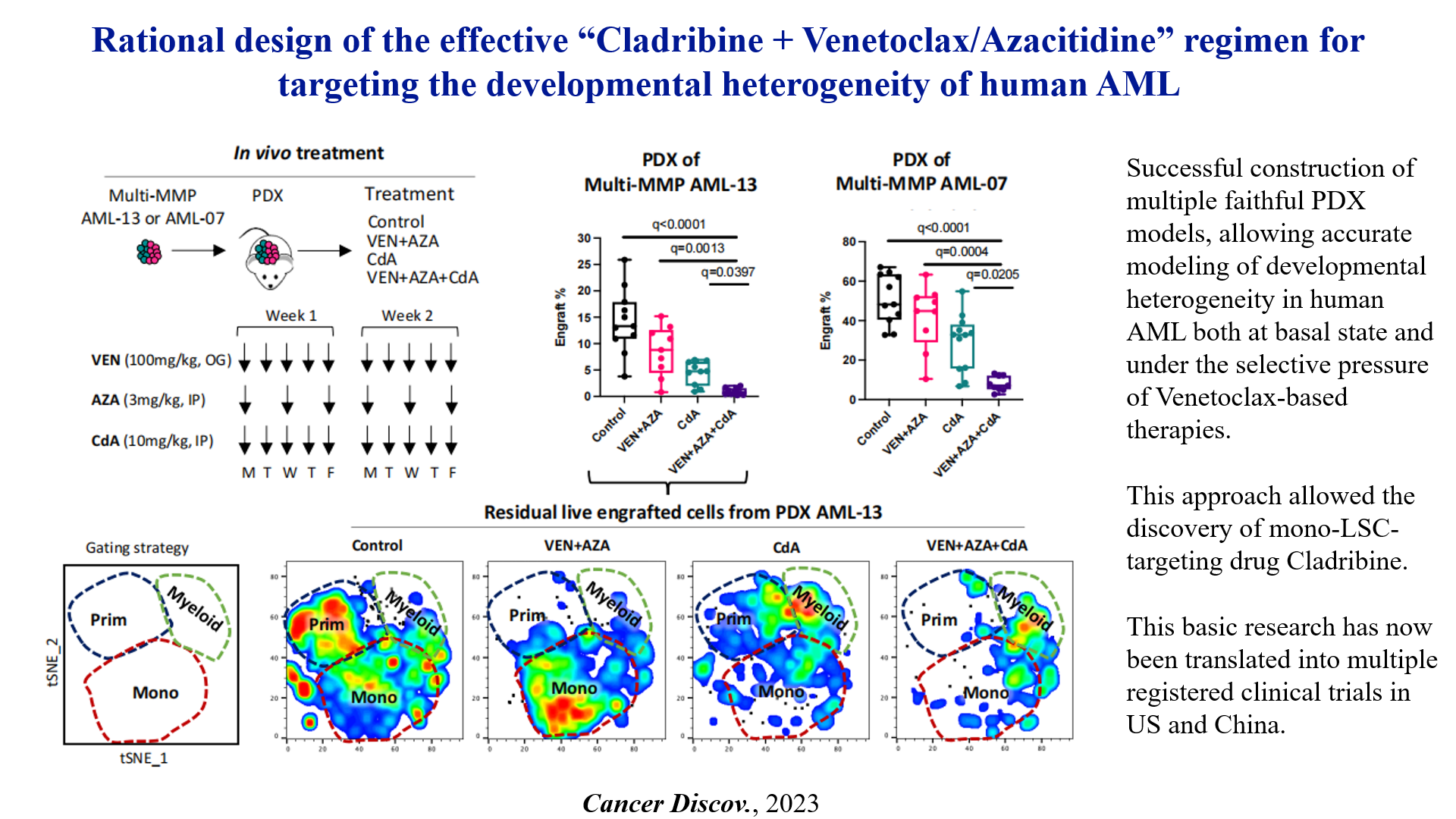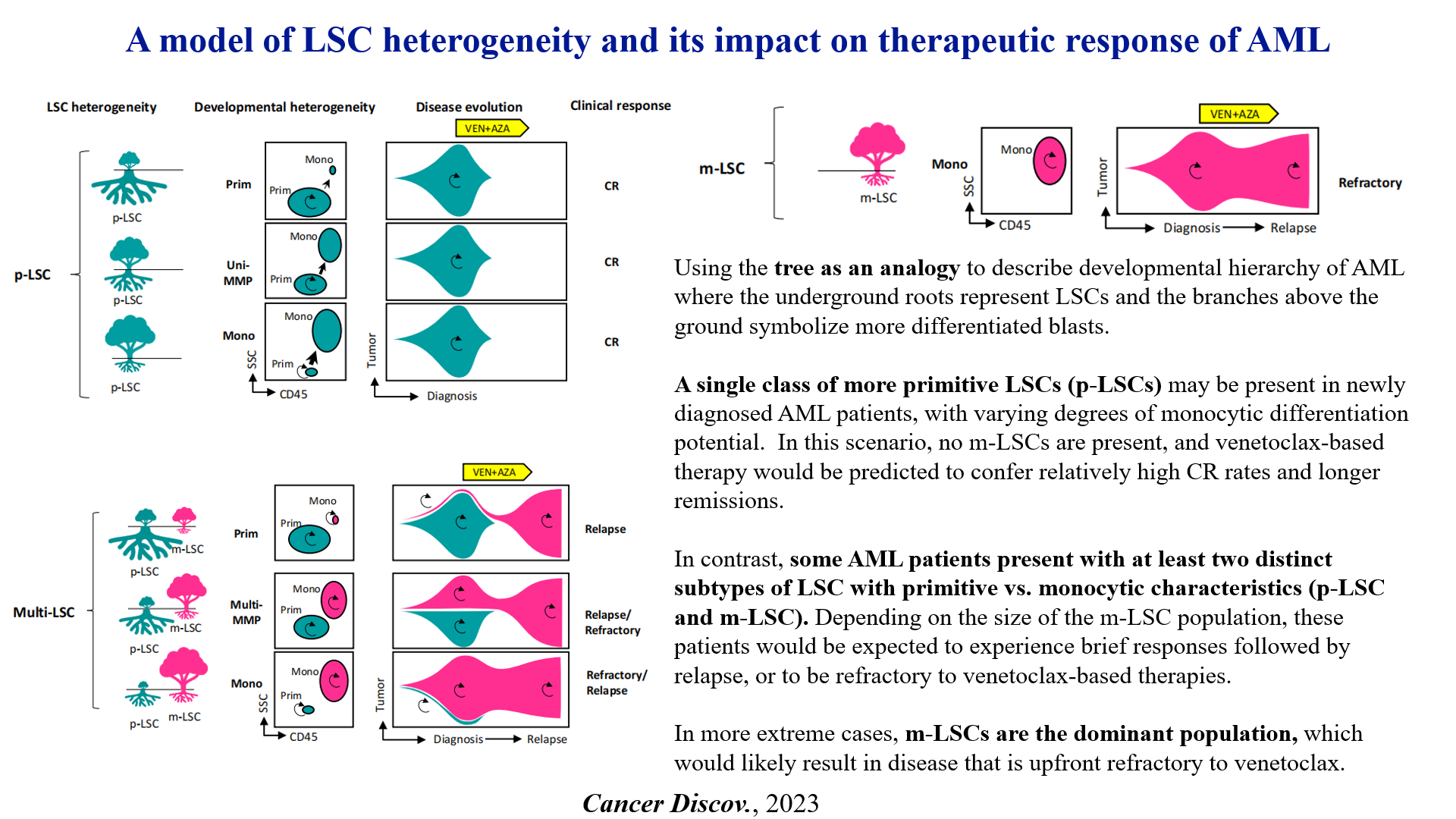WELCOME TO PEI LAB !

MAIN RESEARCH FOCUS
Hematological malignancies, cancers originating from blood-forming tissues and cells, represent a significant global health challenge. Among these, acute myeloid leukemia (AML) stands out as a particularly aggressive and complex disease. AML is characterized by the rapid proliferation of immature myeloid cells in the bone marrow and blood, disrupting normal blood cell production and leading to life-threatening complications. Despite advancements in treatment, AML remains associated with poor long-term survival for many patients, particularly adults and those with relapsed or refractory disease.
The field of AML research faces major hurdles in both basic understanding and translational application. At the fundamental level, the remarkable heterogeneity of AML, driven by a diverse array of genetic and epigenetic alterations, presents a formidable challenge in deciphering universal disease mechanisms and developing broadly effective therapies. Translational research is further complicated by the elusive nature of leukemia stem cells, which are believed to drive relapse and resistance, and the complex interplay between leukemia cells and their bone marrow microenvironment. Overcoming drug resistance, both intrinsic and acquired, continues to be a critical unmet need.
Our mission is to conquer acute myeloid leukemia by unraveling its fundamental complexities, deciphering mechanisms of resistance, and translating these discoveries into innovative and effective therapeutic strategies that improve patient outcomes and ultimately, eradicate this devastating disease.
PUBLICATION
-
The Intriguing Clinical Sucess of BCL-2 Inhibition in Acute Myeloid LeukemiaAnnual Review of Cancer Biology, 2021Monocytic Subclones Confer Resistance to Venetoclax Based Therapy in Patients with Acute Myeloid Leukemia

1369 Wenyi West Road, Yuhang District, Hangzhou City, Zhejiang, China
Copyright






